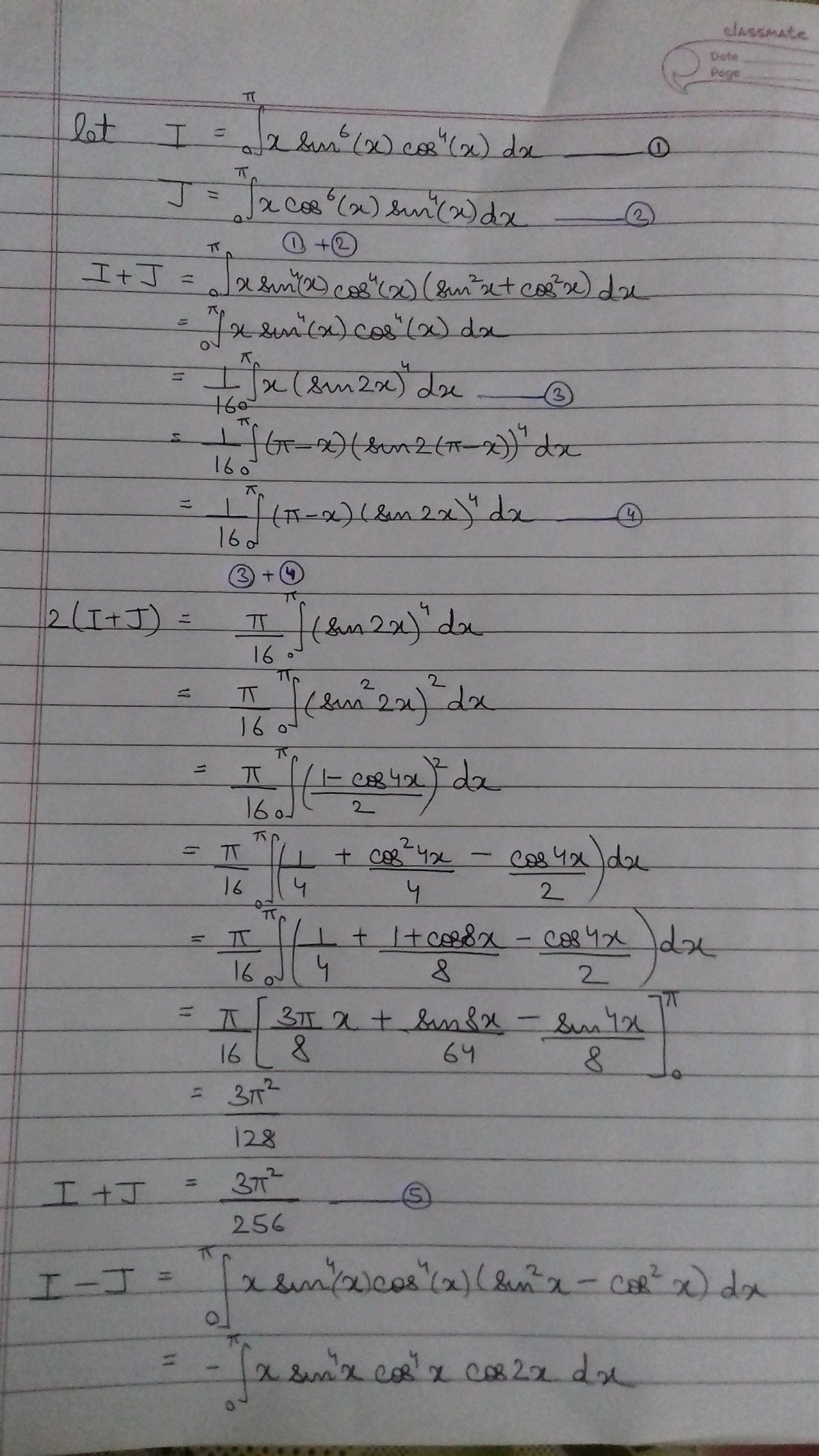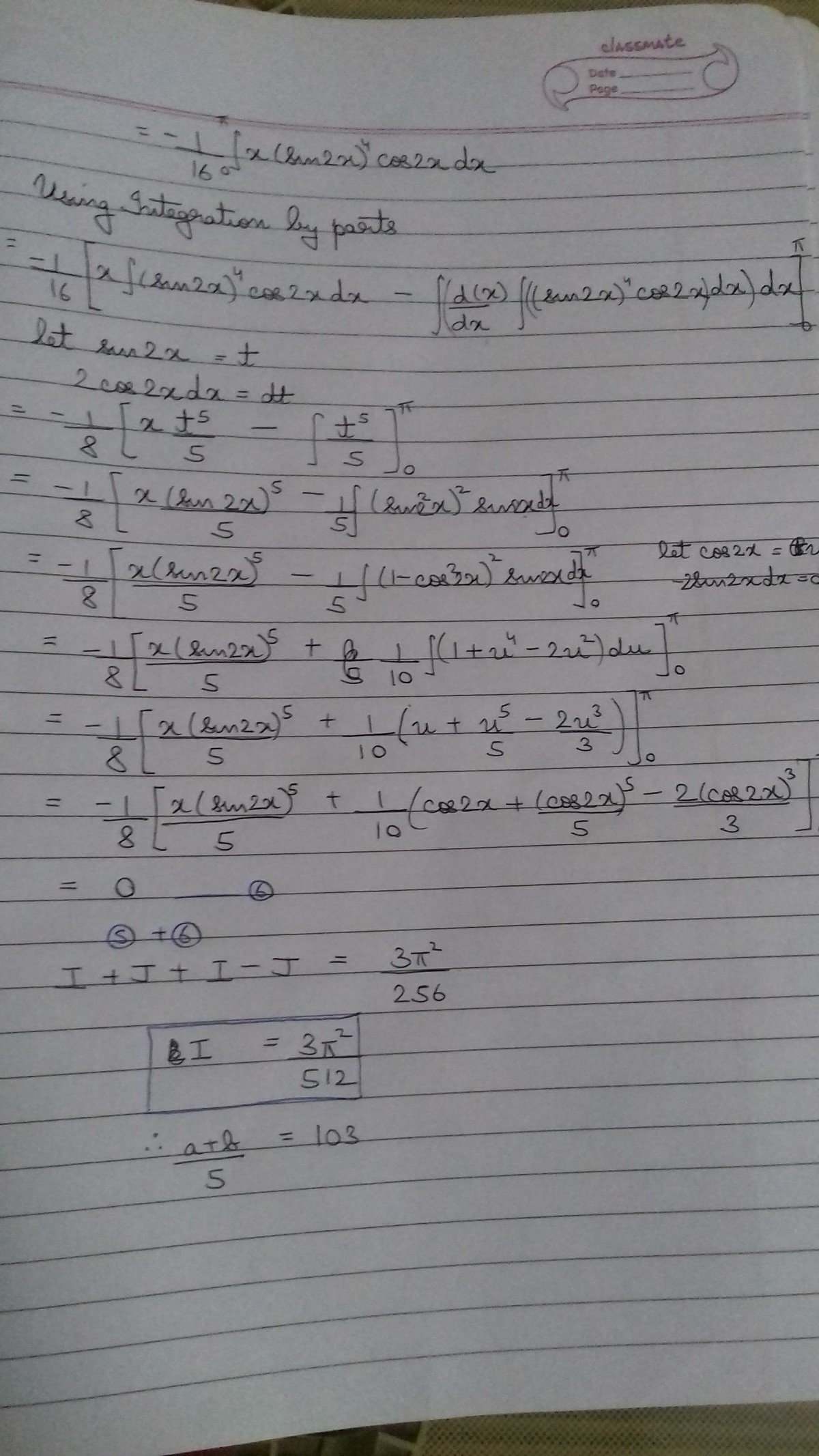When will the holidays come 2
∫ 0 π x sin 6 ( x ) cos 4 ( x ) d x
If the integral above equals to b a π 2 where a and b are coprime integers, then find the value of 5 a + b .
The answer is 103.
This section requires Javascript.
You are seeing this because something didn't load right. We suggest you, (a) try
refreshing the page, (b) enabling javascript if it is disabled on your browser and,
finally, (c)
loading the
non-javascript version of this page
. We're sorry about the hassle.
2 solutions
There is another way without using beta function can you find it out, btw nice solution !+1
Log in to reply
Using reduction formula.
Parth there is. I did it by the conventional method of integration by parts. It took me 3.5 pages.
Btw you can try integrating sin^n(x) cos^m(x) from 0 to pi/2 using Walli's formula,so there is no need of beta function.
∫ 0 π / 2 sin 6 ( x ) cos 4 ( x ) \dx = 1 0 ( 8 ) ( 6 ) ( 4 ) ( 2 ) 5 ( 3 ) ( 1 ) ( 3 ) ( 1 ) × 2 π = 5 1 2 3 π
Aah! I c what mistake i made! What a fool I am! But the conventional method brought me the answer.
In your second line why cant you just add that to the original integral I? Giving 2I = integration from 0 to pi of pi dx


Using f ( a + b − x ) → f ( x ) the integral converts into
I = ∫ 0 π x sin 6 ( x ) cos 4 ( x ) d x = ∫ 0 π ( π − x ) sin 6 ( x ) cos 4 ( x ) d x = π ∫ 0 π sin 6 ( x ) cos 4 ( x ) d x − ∫ 0 π x sin 6 ( x ) cos 4 ( x ) d x = π ∫ 0 π sin 6 ( x ) cos 4 ( x ) d x − I
2 I = π ∫ 0 π sin 6 ( x ) cos 4 ( x ) d x = π ∫ 0 2 π sin 6 ( x ) cos 4 ( x ) d x + π ∫ 2 π π sin 6 ( x ) cos 4 ( x ) d x
Taking the substitution t = x − 2 π in the latter integral in the previous step, we get that the first and last integral in the last step are equal.
2 I = 2 π ∫ 0 2 π sin 6 ( x ) cos 4 ( x ) d x I = π ∫ 0 2 π sin 6 ( x ) cos 4 ( x ) d x
Now, 2 1 B ( x , y ) = ∫ 0 2 π sin 2 x − 1 ( t ) cos 2 y − 1 ( t ) d t .
So, the above integral turns into
I = π × 2 1 × B ( 2 7 , 2 5 ) = 2 π × Γ ( 6 ) Γ ( 2 7 ) Γ ( 2 5 ) = 5 1 2 3 π 2